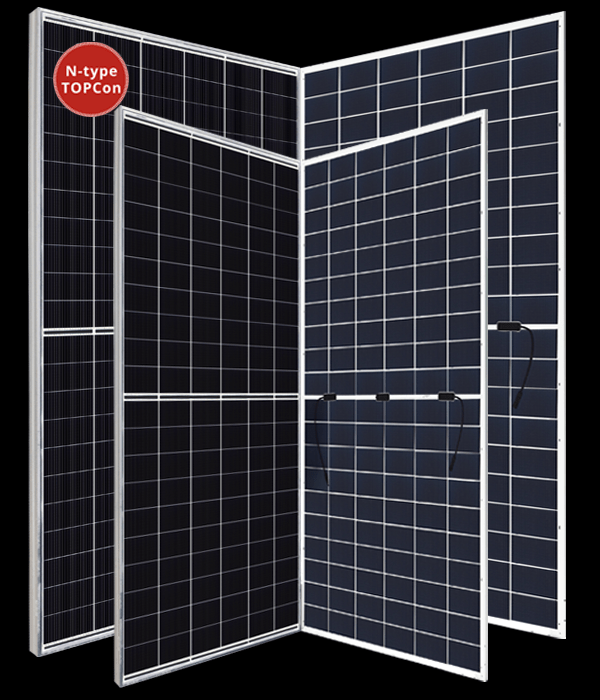
Canadian solar module Series
Power: 420W-715W
- TOPBiHiKu6 620W
- TOPBiHiKu7 715W
- BiHiKu7 665W
- BiHiKu6 550W
- Contact us for more models
Canadian solar panel:
- In September 2021, the company was listed on the “Top 200 Private Enterprises in Jiangsu Province” and ranked 54th on the list of the top 100 manufacturing companies among private enterprises in Jiangsu Province.
- In September 2021, the company was also selected for the “2021 China Top 500 Private Enterprises” list, ranking 478th.
- In September 2022, the company was included in the “2022 China Top 500 Private Enterprises” list, ranking 334th. Additionally, on September 7, 2022, it was ranked 212th on the “2022 China Top 500 Private Manufacturing Enterprises” list.
- On September 12, 2023, the All-China Federation of Industry and Commerce released the “2023 China Top 500 Private Enterprises” list, with the company ranking 235th with a revenue of 50,186,530 million yuan.
- In September 2023, the company was selected for the Forbes “Top 50 Chinese Enterprises with Cross-border Operations” list.
CEO of Canadian
Qu Xiaohua, born in 1964 in Beijing, is originally from Changshu, Jiangsu Province. His father was a faculty member at Tsinghua University, which led to Qu spending his childhood and teenage years on the campus of Tsinghua.
In 1981, Qu Xiaohua enrolled in the Department of Physics at Tsinghua University. He was in the same class as Zhang Chaoyang, the future founder of Sohu, with their dormitories adjacent to each other.
In 1986, Qu Xiaohua went to Canada for further studies. He obtained a Master’s degree in Solid State Physics from the University of Manitoba and later pursued a Ph.D. in Semiconductor Materials Science at the University of Toronto.
His Ph.D. advisor was the renowned materials physicist Harry Ruda, who had a significant influence on Qu Xiaohua. Ruda not only guided his students academically but also helped them expand their social circles in academia and industry. In addition to his academic pursuits, Qu Xiaohua also obtained a securities license in Ontario, Canada, as a backup plan.
After completing his doctoral studies, Qu Xiaohua worked at a Canadian electricity company, primarily focusing on the field of solar photovoltaics. He was involved in various aspects of the production chain of leading international photovoltaic companies.
In November 2001, Qu Xiaohua returned to China to found Attesun, establishing the company in Suzhou.
In the second month after returning to China, the company received an order worth millions of dollars from Volkswagen for solar-powered car chargers. At that time, Attesun did not have any products and even lacked production facilities. Qu Xiaohua led the technical efforts, served as a translator, and oversaw production. After four months of hard work, the company produced its first product in March 2002, which became its first substantial revenue.
In 2004, Attesun diversified its product line to include applications such as car chargers and streetlight charging systems, while also venturing into large-scale photovoltaic modules.
In the first half of 2006, Attesun achieved a revenue of 26 million US dollars. In November of the same year, it was listed on the NASDAQ. At that time, the photovoltaic market was mainly in Europe and the United States, making a US listing the preferred choice for photovoltaic companies.
In the first half of 2008, the domestic photovoltaic market was booming, and the export situation looked promising. However, Qu Xiaohua noticed that the Euro was beginning to fluctuate sharply, starting to decline from its peak in September. He immediately decided to reduce procurement and prepare materials only according to one month’s production volume.
At the same time, he increased cash flow, repaid loans in advance, and postponed infrastructure projects. This enabled Attesun to avoid significant losses during the financial crisis and was one of the first photovoltaic companies to turn losses into profits.
After 2010, especially after most countries worldwide set carbon neutrality goals, the Chinese photovoltaic industry flourished, attracting Chinese photovoltaic companies previously listed on the US stock market to “return to A-shares,” such as JinkoSolar Technology and Trina Solar.
In 2017, Attesun originally hoped to privatize before returning to the A-share market but paused due to various reasons.
In July 2020, Attesun split and integrated its component and system solution businesses, preparing to list on the Science and Technology Innovation Board. Strategic investors such as BYD invested in Attesun.
In 2021, Attesun’s IPO application was accepted by the Shanghai Stock Exchange. However, the company was facing difficulties at that time, with both revenue and profits declining.
Operating cash flow had turned negative due to the “unbearable pain” of rising raw material prices, and there were even instances of delivering products below cost.
After two years of multiple inquiries and the suspension of the audit due to expired financial data, Attesun finally went public on June 9th. Meanwhile, several old rivals, including JinkoSolar, Trina Solar, and JA Solar, had market values exceeding one trillion yuan.
Life is life, Qu Xiaohua faced his biggest challenge in 2019.
In May 2019, while on a research trip to Ningxia, Qu Xiaohua was unfortunate to be involved in a car accident, resulting in high-level paralysis. He worked hard to recover and returned to the company, leading it to a listing on the A-share market. This experience is worth learning from for entrepreneurs facing challenges today.
About Canadian module Company
In March 2023, the China Securities Regulatory Commission (CSRC) approved Attesun’s registration for an IPO on the Science and Technology Innovation Board.
On March 22, 2023, the Shanghai Stock Exchange website disclosed that it had approved the initial public offering (IPO) registration application of Attesun Solar Power Group Co., Ltd., and the company planned to debut on the Science and Technology Innovation Board.
On May 31, 2023, Attesun’s new shares were available for subscription.
On June 9, 2023, Attesun was listed on the Science and Technology Innovation Board.
In January 2024, BlackRock agreed to invest $500 million in a subsidiary of Attesun Solar Energy to increase its investments in renewable energy and energy storage.
